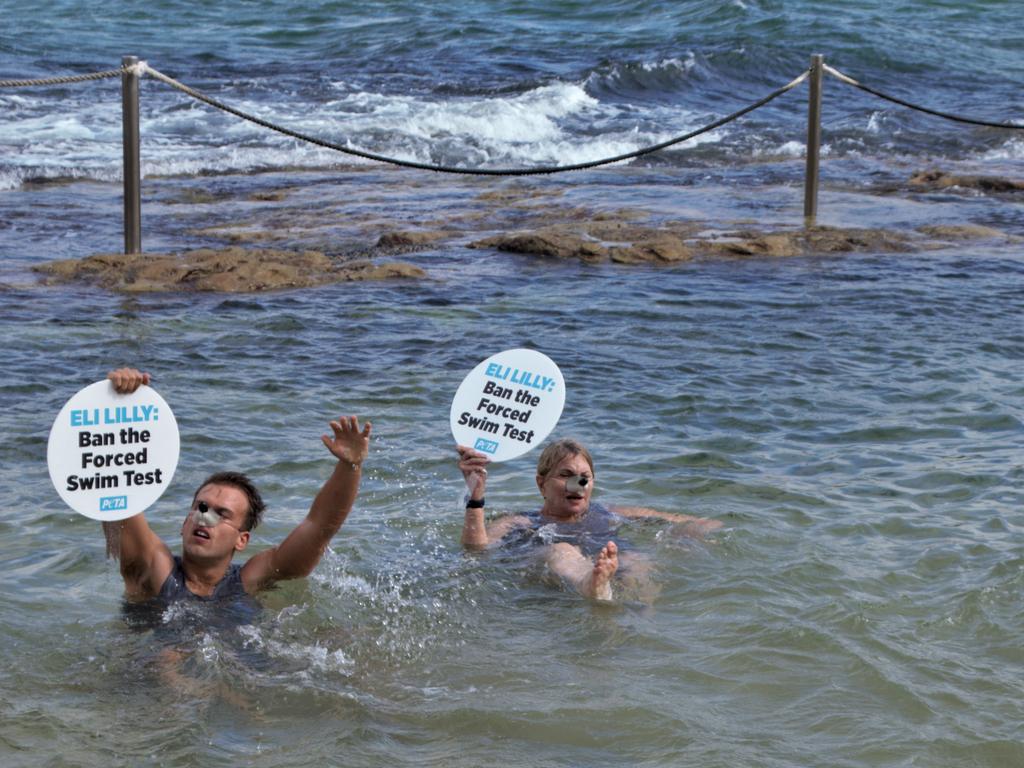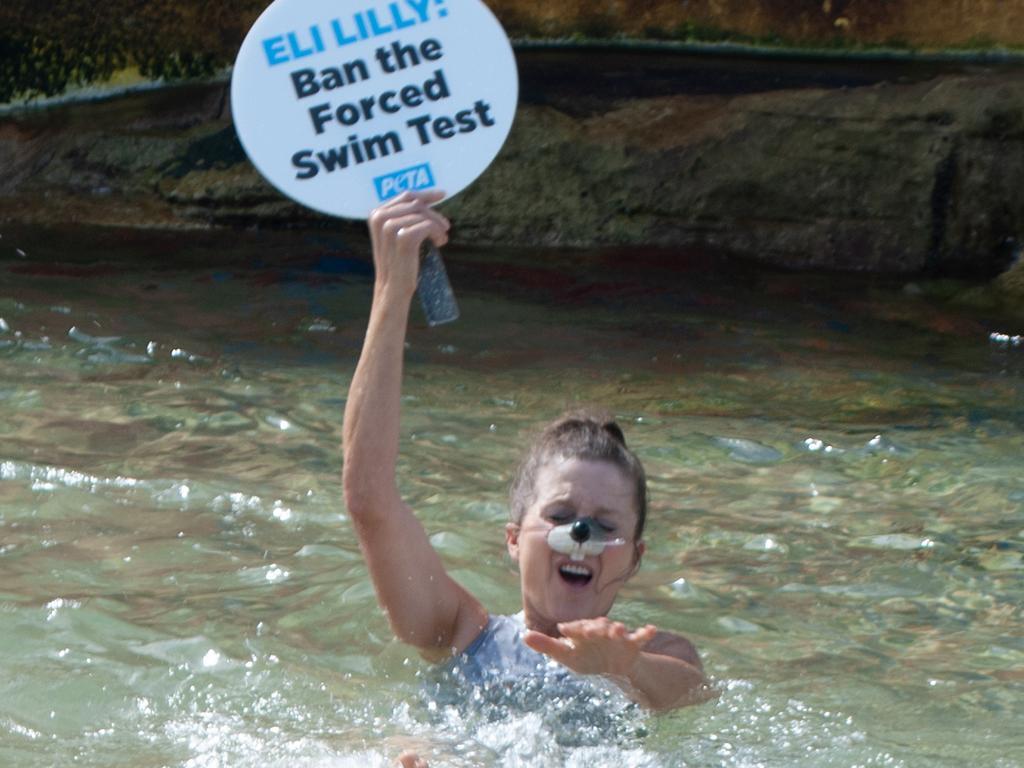PETA protesters pretend to be ‘drowning mice’
A group of people dressed as mice “struggled” to swim at Bondi Beach today in an effort to call attention to this “barbaric” practice.
A group of protesters dressed as mice “struggled” in the water off Bondi Beach on Wednesday in an effort to call attention to pharmaceutical companies’ use of “barbaric” forced swim tests.
Four whisker-sporting supporters of PETA (People for the Ethical Treatment of Animals) held up signs calling on drug manufacturer Eli Lilly to ban the practice, in which small animals such as mice or hamsters are placed in inescapable beakers filled with water in order to measure how long they will fight to stay alive.
Also known as the “despair” test, it is commonly used in pharmaceutical research to measure the supposed effectiveness of antidepressant medications — however some have long criticised its validity.
Rather than immobility being a sign of depression or despair, critics of the test say it is rather an indicator of learning or adaptation.
Stream the news you want, when you want with Flash. 25+ news channels in 1 place. New to Flash? Try 1 month free. Offer ends 31 October, 2022 >

“Statistically, the test is less accurate than a coin toss in determining the effectiveness of antidepressant medications,” PETA said in a statement.
“Between 1993 and 2019, Eli Lilly employees published at least 22 papers and submitted at least 11 patent applications describing the use of the notorious test — but none of the drugs tested were brought to market for depression.”
PETA Australia outreach and partnerships manager Emily Rice said the test was as “archaic as it is barbaric”.
“PETA is calling on Eli Lilly to follow the lead of more than a dozen other pharmaceutical companies and ban this useless test,” she said.
GlaxoSmithKline, Bayer, Pfizer, J&J and Bristol Myers Squibb are among the companies that have banned the forced swim test.
Last year, PETA neuroscientist Dr Emily Trunnell and psychologist Dr Constança Carvalho published a paper examining the use of the forced swim test by the top 15 pharmaceutical companies.
They concluded that the experiment was not effective in determining whether a test substance would be effective in treating human depression.
Of 109 compounds tested using at least 15,238 animals, only 31 had been investigated for their possible effects on depression in humans – and of the 31, only seven were predictive of the human outcome, according to the paper.
None of those compounds are currently approved for the market.
In October, researchers from the UK’s Medicines and Healthcare products Regulatory Agency called for alternative tests to replace the forced swim test.

Their paper, which noted PETA’s success in encouraging some companies to abandon its use, said there was “clear evidence that the test is not essential for demonstration of efficacy” of antidepressant medications.
Conversely, the British Association for Psychopharmacology, the Laboratory Animal Science Association and Understanding Animal Research issued a joint fact sheet in 2020 justifying the continued use of the forced swim test.
“Scientists are working to develop less stressful tests and it is hoped that new tests to replace the FST will be developed and validated in the future,” it said.
“So far, none is as reliable as the FST and so, unless this test is used, there is a high risk of producing misleading conclusions about the potential antidepressant effects of test drugs.”
Eli Lilly has been contacted for comment.






